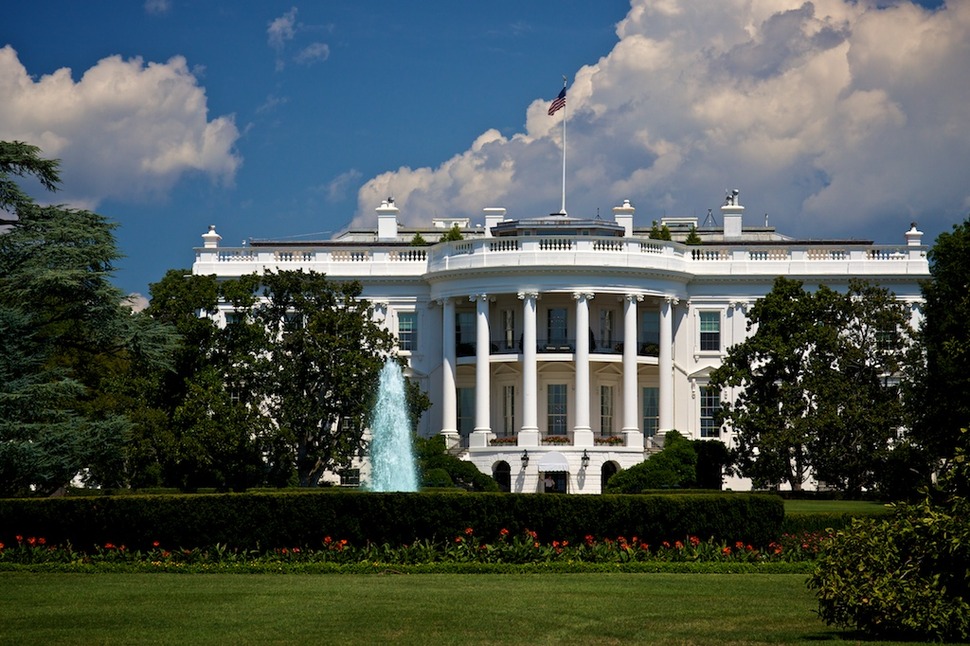 |
|
The White House reported that US President Donald Trump and South Korean President Moon Jae-in talked on the phone regarding North Korea on May 7. White House Deputy Press Secretary Judd Deere released a statement on May 7 saying that Trump and Moon talked on the phone, saying, they “discussed recent developments regarding the Democratic People‘s Republic of Korea (DPRK) and how to achieve the final, fully verified denuclearization of the DPRK."
|
US politicians call for more pressure on NK in wake of short-range projectiles
North Korea’s launch of short-range projectiles has brought the North Korean policy of US President Donald Trump into question. While the US has concluded that the projectiles were not intermediate- or long-range missiles and has been attempting to bring North Korea to the negotiating table, the risk remains that the recent thaw could revert to a bruising confrontation, depending on how things play out. Since the North launched the projectiles on May 4, the US has been moving to calm tensions on the Korean Peninsula along with South Korea and Japan. Trump said that North Korean leader Kim Jong-un knows that Trump is standing with him and that Kim doesn’t want to break the promises he has made to Trump, while US Secretary of State Mike Pompeo said that the projectiles did not pose much of a risk and that the US wants to continue dialogue with the North. These moves are aimed at maintaining the current framework of dialogue while preventing any additional shows of force by the North. Trump has bragged about stopping North Korea from carrying out any nuclear tests or missile launches, and that feat would be tarnished if the North reverts to such behavior. Since Trump aims to be reelected in November 2020, it’s crucial that the North maintains its moratorium on nuclear and missile tests, even if it doesn’t agree to swap complete denuclearization for lifting sanctions. “North Korea appears to have tested a new short-range missile—and President Donald Trump’s resolve to keep it from doing more of the same in the future,” the Associated Press wrote on May 6. The question is whether the US has anything to offer North Korea to prevent it from repeating such behavior. The North has offered to dismantle its Yongbyon nuclear complex in exchange for the US providing relief from key sanctions, and stated that this offer is only available until the end of the year. But on May 5, Pompeo reiterated the US’ unwillingness to lift sanctions, noting that the toughest sanctions on North Korea in history will continue. This is leading some to predict that tensions may rise further as the deadlock drags on and the end of the year draws closer. “There may still be an escalation on the North’s part aimed more clearly and directly at the US, for example [. . . medium-range] Nodong missile launches. [. . .] Such a move would stay just within Kim’s pledge not to further test intermediate or long-range missiles, but unmistakably signal a serious deterioration in the atmosphere for US-DPRK talks,” wrote Robert Carlin, a visiting scholar at Stanford University and an expert on North Korea (officially called the Democratic People’s Republic of Korea, or DPRK), in an article posted on North Korean affairs website 38 North on May 5. Another variable is the push for a tougher stance from politicians in the US. Since North Korea fired its short-range projectiles, Republican Senator Cory Gardner, chair of the Senate Foreign Relations Subcommittee on East Asia, the Pacific, and International Cybersecurity Policy, and Senator Ed Markey, the Democratic Party’s ranking member on that subcommittee, have been calling for more pressure to be placed on the North. The Democratic Party also recently sent a letter to Pompeo asking to explain why the US government signed a bill for US$2 million from North Korea while it was securing the release of Otto Warmbier, an American university student who died after being repatriated from North Korea to the US. The US State Department appears to be walking a tightrope between official policy and public opinion. On May 6, following North Korea Freedom Week, the State Department issued a statement criticizing the North Korean regime for its flagrant human rights abuses. By Hwang Joon-bum, Washington correspondent Please direct comments or questions to [english@hani.co.kr]






